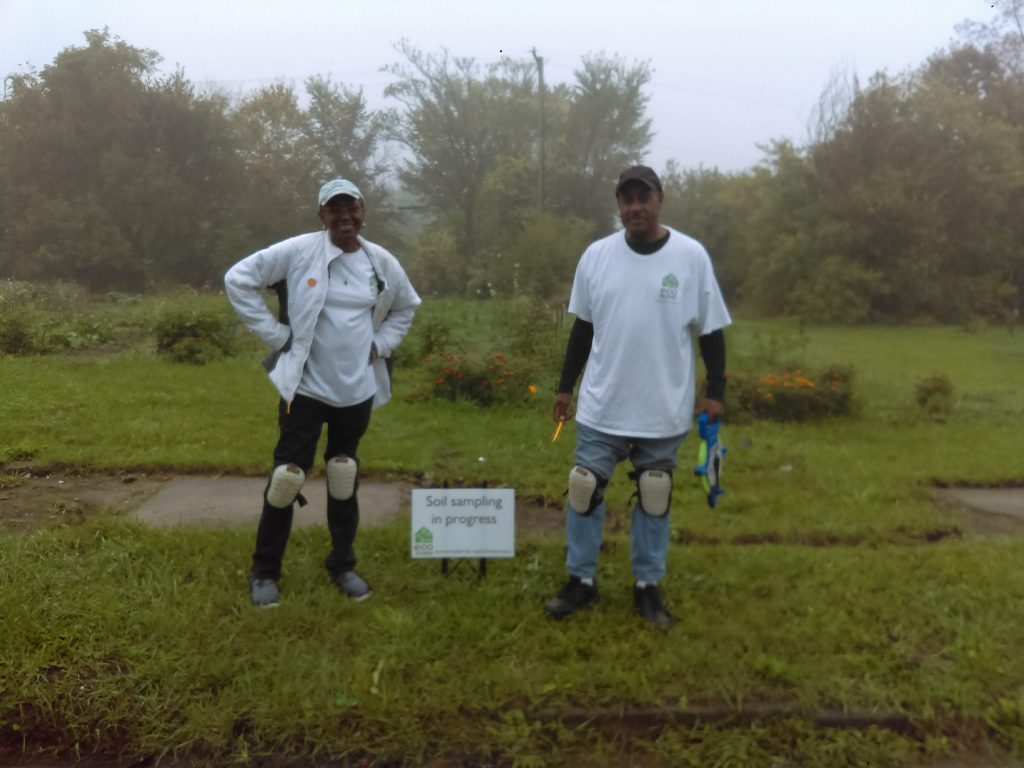Researchers Seek Detroit, Highland Park, Hamtramck Property Owners For Lead Remediation Study
The lead remediation technique is a more eco-friendly way than replacing your lead-tainted soil or pouring concrete over it, and could help reduce lead poisoning in children.

The Soil Lead Project is aimed at reducing the transfer of lead from soil to garden crops and families living in Detroit, Highland Park and Hamtramck.
The study leader Eco Works’ Allison Harris says the big picture goal of the study is to try to mitigate the risk of children getting lead poisoning.
“There was a study in 2013 showing that Detroit had the fourth highest rates of lead poisoning in the country, we know that even at the height of the Flint Water Crisis, rates of lead poisoning in Detroit were outpacing Flint so this is a really serious issue.”

Harris explains that the project was conceived through the desire for a third option for someone who finds that they have high lead levels in their soil.
“Right now there are two strategies if a home is found to have high lead levels in soil, neither of those solutions are terribly sustainable,” says Harris.
Currently, either property owners can dig up the lead-tainted soil, send it to a landfill and back fill it with clean soil or cover the soil with concrete. The Soil Lead Project leaves the lead in the soil, but changes the form of the lead so that its not bio-available, meaning if someone accidentally gets exposed, “their body doesn’t recognize it, and doesn’t absorb it and the person doesn’t get sick,” Harris explains.
Here’s How It Works
If you’re a property owner in Highland Park, Detroit or Hamtramck, you need to be willing to let Eco Works borrow your lawn for about a year.
“We will visit three times. The first time we will come and take a baseline of the soil,” says Harris, who notes that all of the information about the soil will be shared with the property owners, so you’ll get to learn about some basic soil characteristics like the Ph and amount of organic matter in your dirt.
Next, the Eco Works team will visit in the fall to “go through a process of aerating the soil,” which, Harris explains, is essentially just poking a bunch of holes in your lawn (think golf courses). She says that while “cosmetically, it doesn’t look great for a couple weeks,” the temporary holes will create grass that “will look amazing.”
The final visit happens about a year later when Harris and the rest of the team come back to observe how the soil has changed as a result of the treatment. Harris says the treatment includes the application of “a small amount of organic substance that will hopefully bind the lead in place,” but says that, like any scientific study, Eco Works needs to return to the site to make sure that the results are consistent with what they have found in the first two years of the ongoing study.
Organic Matter… Matters
This process effectively represses the lead content.
“What we have found so far is that the healthier the soil, the less bio-accessible the lead is,” explains Harris, who adds that one unexpected finding was “that the amount of organic matter, matters a lot,” which is why she encourages people to add compost and mulch to their soil when possible.
Participants in the study do not have to pay to be a part of the Lead Soil Project. There will be a prize drawing at the end of the study to sweeten the deal for those who participate for the entirety of the project.
Eco Works is hosting a webinar happening July 31st at 12:30 p.m. Harris says the webinar is “designed to give folks some strategies for dealing with lead in their homes. She says she hopes the project and webinar will “empower folks with some strategies to keep their children and families safe.”
Trusted, accurate, up-to-date
WDET is here to keep you informed on essential information, news and resources related to COVID-19.
This is a stressful, insecure time for many. So it’s more important than ever for you, our listeners and readers, who are able to donate to keep supporting WDET’s mission. Please make a gift today.
